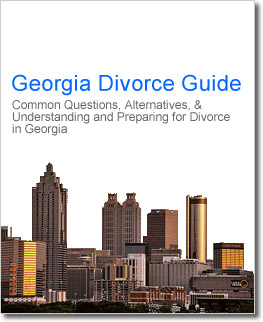Divorce Attorneys in Atlanta
Atlanta Divorce Attorney John DiNatale counsels his clients at some of the most difficult times in their lives. He understands that when life-changing issues are at stake, you need the best and brightest legal counsel in your corner.
From the moment you walk in the door at Kitchens New Cleghorn, you will have the best and brightest representation available. As head of the Family Law and Litigation practices, Attorney DiNatale brings to the table a wealth of knowledge and experience on Atlanta divorce and family law. If you’d like more information on Attorney DiNatale and our Divorce & Family Law practice:
- Visit our Client Reviews Page and read what former clients say about us.
- Check out our Credentials for yourself on our Atlanta Attorney Bios Page.
- Watch our Atlanta Family Law Lectures on our Videos Page.
- Download and read a free copy of our Georgia Divorce Guide.
At Kitchens New Cleghorn, LLC, we have decades of experience helping couples and families navigate the Atlanta Family Law system to get the results they want. From pre-divorce negotiations to jury trials, our divorce lawyers in Atlanta work hard to protect our clients. We are committed to developing and implementing effective legal strategies that get our clients the results they deserve.
Attorney DiNatale knows that each individual case requires sensitivity and awareness to the unique circumstances surrounding it. He works with every client to determine the strategy and course of action best suited to obtain the desired result.
Attorney DiNatale has extensive experience helping clients achieve favorable resolutions with:
- High-intensity Child Custody Disputes: When dealing with a child custody dispute it is imperative that you have experienced counsel with the skills needed to properly navigate the Atlanta divorce legal process in your favor. Mr. DiNatale has successfully represented numerous clients in sensitive child custody disputes achieve favorable outcomes.
- High Net Worth Division Strategies: Attorney DiNatale is well versed in helping clients achieve positive outcomes in cases involving the division of high-asset marital estates. Understanding your rights and obligations regarding asset division is crucial for a successful resolution. Mr. DiNatale works with clients to create a strategic solution that will help achieve your desired results.
The Difference A Skilled Divorce Attorney in Atlanta Can Make
Getting a divorce can mark a time of tension and strain in your life; having skilled counsel by your side will make it much easier. The lawyers at Kitchens New Cleghorn, LLC offer caring, sensitive, professional legal representation and have experience handling all aspects of divorce and divorce-related legal issues. With our experienced attorneys located right in the heart of Buckhead, you can feel confident knowing you will be well-represented in all aspects of your case, including:

Contested Divorces: Refers to a split in which spouses cannot agree on how end the marriage. Such details include alimony, child custody, division of marital property, and more. Sometimes contested divorces go to trial, but more often they are settled out of court through negotiation. Our lawyers will help you weigh your options and make ending your marriage as stress-free as possible.
 Child Custody: Determining where your children will live following the end of a marriage is among the most sensitive and contentious issues. Our Atlanta family law attorneys recognize the importance of maintaining strong family bonds, and know there is likely nothing more important to you than your children. We will work hard to ensure you are well-represented throughout your divorce and help you get the child custody agreement that you deserve.
Child Custody: Determining where your children will live following the end of a marriage is among the most sensitive and contentious issues. Our Atlanta family law attorneys recognize the importance of maintaining strong family bonds, and know there is likely nothing more important to you than your children. We will work hard to ensure you are well-represented throughout your divorce and help you get the child custody agreement that you deserve.
 Child Support: The end of a marriage doesn’t signal the end of financial responsibilities to your children. Working with our attorneys, you will calculate the appropriate financial support you and your child need. If you will be responsible for paying child support, it is important that you work with your lawyer to ensure that your child support payments are fair and reasonable.
Child Support: The end of a marriage doesn’t signal the end of financial responsibilities to your children. Working with our attorneys, you will calculate the appropriate financial support you and your child need. If you will be responsible for paying child support, it is important that you work with your lawyer to ensure that your child support payments are fair and reasonable.
 Alimony: Divorce can spell financial disaster when one spouse is financially dependent upon the other. Courts typically award alimony is this situation if the facts permit. Our attorneys have successfully negotiated alimony disputes for countless clients and will work hard to get the outcome you need.
Alimony: Divorce can spell financial disaster when one spouse is financially dependent upon the other. Courts typically award alimony is this situation if the facts permit. Our attorneys have successfully negotiated alimony disputes for countless clients and will work hard to get the outcome you need.
 Property Division: There are no set rules when it comes to splitting marital assets. Homes, cars, retirement accounts, and more can be divided during your divorce. Make sure the court has all the facts before a decision is made. Representation by our lawyers will guarantee that the court has the right set of facts to make a decision that protects your property.
Property Division: There are no set rules when it comes to splitting marital assets. Homes, cars, retirement accounts, and more can be divided during your divorce. Make sure the court has all the facts before a decision is made. Representation by our lawyers will guarantee that the court has the right set of facts to make a decision that protects your property.
 Uncontested Divorce: When two spouses are able to reach an agreement on alimony, child custody, property division, and every other detail concerning the end of their marriage, an uncontested divorce may be suitable. Typically, it is faster and less expensive than a contested divorce, but these proceedings still require the guidance of an attorney. Our lawyers will counsel you on whether an uncontested divorce is your best option.
Uncontested Divorce: When two spouses are able to reach an agreement on alimony, child custody, property division, and every other detail concerning the end of their marriage, an uncontested divorce may be suitable. Typically, it is faster and less expensive than a contested divorce, but these proceedings still require the guidance of an attorney. Our lawyers will counsel you on whether an uncontested divorce is your best option.
 Prenuptial Agreements: A prenuptial agreement can be a difficult topic to broach, but it ultimately protects your assets as well as those of your partner. Prenuptial Agreements ensure that your assets are secure in the event of the unexpected.
Prenuptial Agreements: A prenuptial agreement can be a difficult topic to broach, but it ultimately protects your assets as well as those of your partner. Prenuptial Agreements ensure that your assets are secure in the event of the unexpected.
Divorce & Family Law
In addition to divorce, the attorneys at Kitchens New Cleghorn also focus on family law that helps individuals maintain and expand their families – whether it’s a traditional family or otherwise. We can help you adopt a child or add legal reinforcements to your LGBTQ relationship. Our attorneys frequently handle cases involving:
 Adoption: Adding a new member to your family is an exciting experience. The attorneys at Kitchens New Cleghorn are here to walk you through the complex laws surrounding the adoption process in Georgia. Whether you’re a single adult, married, or LGBTQ couple, we will help you adopt your child and begin enjoying your new family.
Adoption: Adding a new member to your family is an exciting experience. The attorneys at Kitchens New Cleghorn are here to walk you through the complex laws surrounding the adoption process in Georgia. Whether you’re a single adult, married, or LGBTQ couple, we will help you adopt your child and begin enjoying your new family.
Contact Us for a Consultation
If you need legal assistance in or around the metro Atlanta area, schedule a consultation by calling our office directly or completing the form on the upper right hand side of this page.
Our office is located in the heart of Buckhead at 2973 Hardman Court, Atlanta, GA 30305. For additional information, call (678) 244-2880. Thank you and we look forward to working with you.
Additional Georgia Divorce Info:
Under Georgia law, one or both of spouses must have lived in the state for at least six months prior to filing. In addition, you must choose one or more of 13 grounds under which you may file for a divorce, ranging from adultery, where one party has been unfaithful, to desertion, in which one spouse has not been residing with the other spouse for more than a year. In most cases, we will recommend filing for a ‘no-fault divorce’, meaning simply that one spouse states the marriage is irreparably broken. While a divorce can take as little as 31 days, in the case of a contested divorce it can take considerably longer.
Divorce is never a pleasant experience, but there is no need to go through it alone. Important life decisions such as ending a marriage require time, patience and skilled legal assistance. Call one of our divorce attorneys for your legal consultation. We look forward to hearing from you.
Although people use these terms interchangeably, they are actually three distinct legal actions that affect marital status. To remember these differences, we need to first look at legal separation.
Unlike divorces and annulments, legal separations do not result in the termination of a union. Instead, couples may begin making the necessary decisions – division of assets, custody of children, spousal support, to name a few – to prepare for a potential split without cutting the cord right then and there. One of the main benefits of legal separation is that couples can simply request to be reclassified as married if they reconcile.
But, if the couple deems the union unsalvageable, then divorce simply becomes a formality. The couple has already addressed the difficult decisions during the separation process.
Annulment means that the marriage itself should have been declared “null and void” from the beginning. Reasons for annulment can include any number of grounds, such as mental incompetence, being underage without parental consent to marry, coercion or fraud, bigamy, and incest.
Divorce, in comparison, is a formal dissolution of a legal marriage.
Aside from consulting with a qualified divorce attorney, there are a few things you can do if your marriage is beyond repair. At this point, the most important action to take alone is to gather all financial documents about your assets and debts.
Your assets include mortgage, bank, and retirement account statements and appraisals of objects. Your debts include student loans, mortgage loans, and credit card debt. An experienced attorney can use your financial records to argue on your behalf about how to distribute assets.
If you have children, continue living with your spouse as you negotiate a workable, yet non-binding, custody agreement. The obvious exception to this rule is if you or your children are subjected to violence or abuse. In this case, speak with an attorney about filing a protective order as soon as you can. In any case, the documentation of relevant actions and words is a good practice.
According to Georgia law, the mother gets sole custody of a child born to an unmarried couple. The father must establish legitimate paternity of the child to get custody rights.
Legitimization occurs only when the biological father proves a legal relationship to the child by filing a petition in the mother’s county of residence. A simple DNA test will not suffice to prove legality. The petition must include the child’s name, sex, and age; the mother’s name; and any name change the petitioner desires for the child (if applicable).
After the biological father files this legitimization action, the mother may challenge it. She may state that the petitioning father is not, in fact, the child’s paternal father or has not adequately developed a relationship with the child.
If the courts grant the petition to the father, the father and mother may not address custody rights, parenting time, and visitation rights.
While you may think you will have a simple divorce, just remember that even the most amicable divorce you can imagine may encounter obstacles. For that reason, we strongly recommend consulting an attorney at the very least. An attorney will make sure you are getting your fair share in the divorce agreement negotiated by you and your spouse before you sign it.
For most cases, however, there will be significant roadblocks to manage. An experienced divorce attorney will help you navigate these unfamiliar waters, especially in regard to divorce law in Georgia.
Usually, the first legal ground you need to establish before getting a divorce is residency. Most states require a period of residency, typically six to twelve months, before you are able to file for divorce in that state.
The state of filing will go a long way in determining whether your divorce will be a fault or no-fault divorce; the legal grounds vary state-to-state for each type. In fault divorces, where one or both parties to a divorce assign blame of the marriage’s failure on the other, the legal grounds may include abandonment, incarceration, adultery, mental illness, sexual impotence, cruelty, and more. In no-fault divorces, where each party takes responsibility or does not assign blame, the legal ground most often cited is “irreconcilable differences.”
If the divorcing couple cannot come to an agreement on the division of assets, they can submit a request to one of two entities. The first is a third-party mediator, who will objectively determine the proper distribution of personal property and assets (and debts, for that matter). The second is the court itself, which will grant the assets to each divorcing party based on state law. State laws governing the division of assets typically fall under two categories: community property and equitable distribution.
















